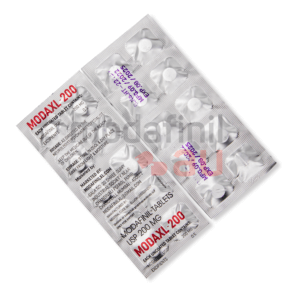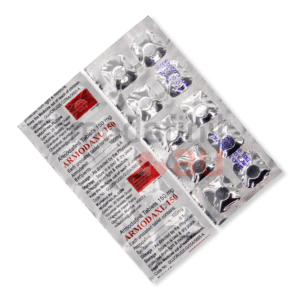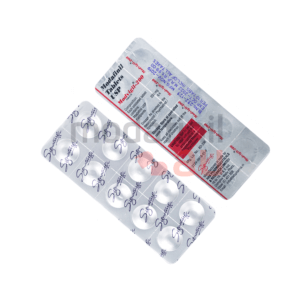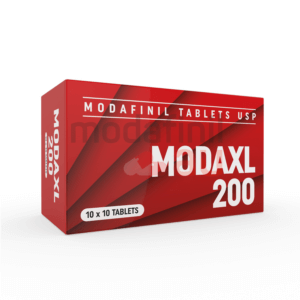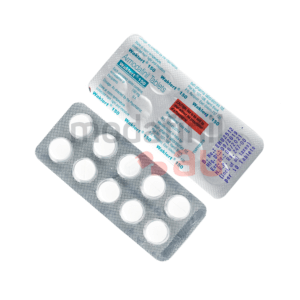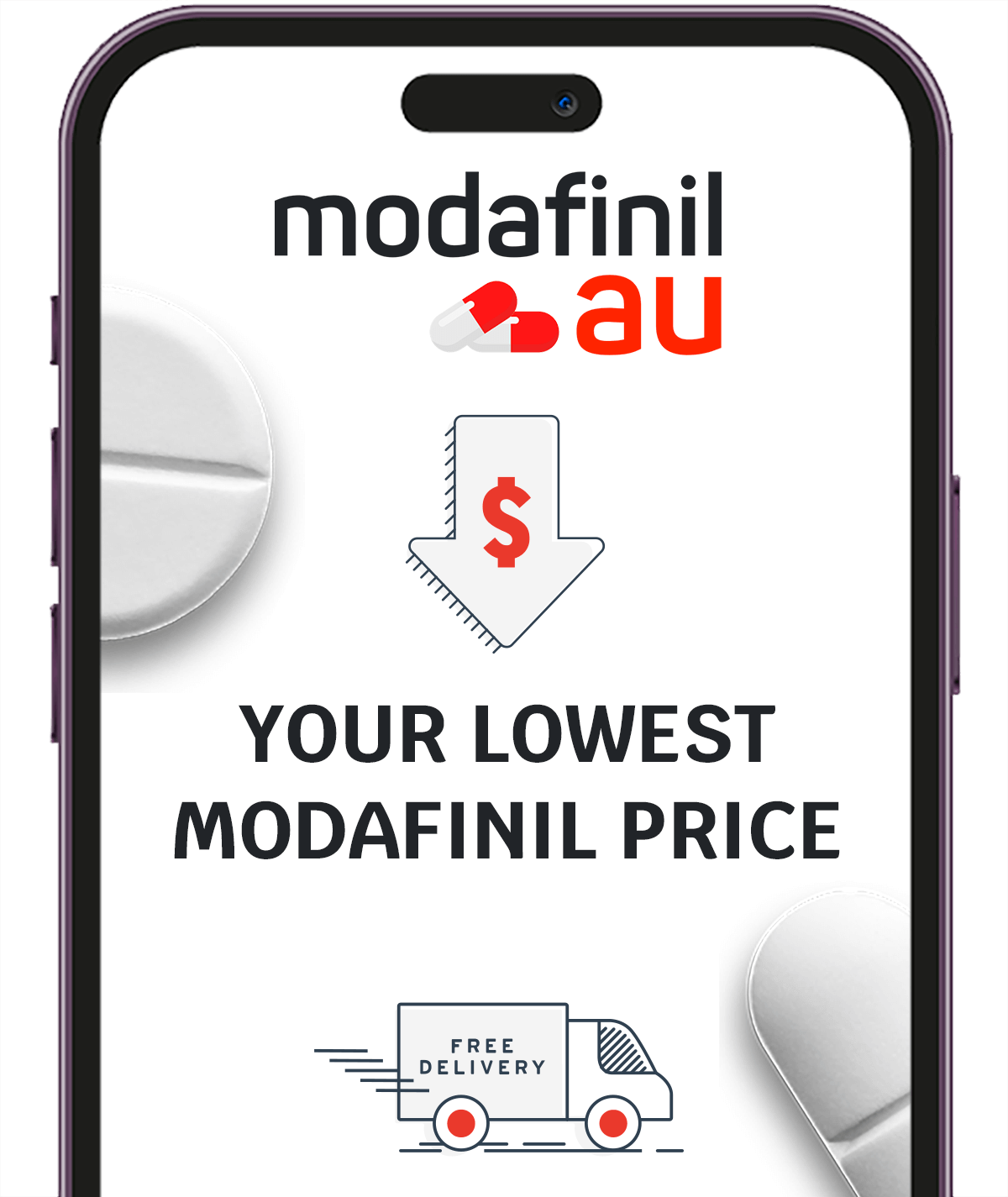What Is Modafinil Used For?
You may have heard that modafinil is one of the safest and most effective brain-boosting medications in the world. While there may be some truth to that, cognitive enhancement is not the only purpose modafinil is used for. In this guide, we’ll shed light on the specific diseases the drug is approved to treat, as well as how it can be used for studying, increasing concentration, boosting memory, and improving productivity. Let’s get started.
What Is Modafinil?
Modafinil is a medication that belongs to a class of drugs known as wakefulness-promoting agents. It is primarily prescribed to treat certain sleep disorders in adults, particularly those causing excessive sleepiness during the day and impairing productivity. However, it is also commonly used off-label as a cognitive enhancer to boost overall mental performance and ultimately gain a competitive edge in various aspects of life.
Modafinil typically comes in two standard dosage strengths of 100 mg and 200 mg tablets. These doses are commonly prescribed for various sleep disorders and cognitive enhancement purposes. However, individual dosing may vary from individual to individual based on factors such as the severity of the condition being treated and the individual’s response to the treatment. It is also available in generic form under several different brand names, including Modalert, Provigil, and Modvigil, which offer the same level of effectiveness and safety.
In the area of safety, modafinil is considered the “world’s safest ‘smart drug’” because of its remarkably low potential for addiction and relatively few side effects. Unlike most traditional stimulants such as amphetamines, modafinil does not cause euphoria and dependence — when it’s used strictly as prescribed. Many individuals who use the drug report experiencing significant improvement in their cognitive abilities and various aspects of their lives, including school and work. The reviews about it are vastly positive, indicating that it really does help to increase alertness, enhance memory and learning, and elevate mood.
Being available in generic form, coupled with its favorable safety profile and reported benefits, has made modafinil its name among individuals across the world looking to boost their productivity and mental clarity.
Disorders for Which Modafinil Is Approved
Modafinil is primarily approved by the Therapeutic Goods Administration (TGA) to treat 3 main sleep disorders: narcolepsy, obstructive sleep apnea (OSA), and shift work sleep disorder (SWSD).
Obstructive Sleep Apnea (OSA)
OSA is one of the most common sleep-related breathing disorders. It is characterized by repeated episodes of partial or complete blockage of the upper airways or windpipe during sleep, which, in turn, disrupts oxygen flow to the brain and sleep. Some of the common symptoms associated with sleep apnea include loud snoring, trouble focusing during the day, morning headaches, decreased interest in sex, and excessive daytime sleepiness.
While it’s possible to go on with OSA without treatment, it’s not ideal. It becomes important to seek urgent help from a doctor when the conditions begin to cause gasping, too frequent pauses in breathing during sleep, and snoring loud enough to disrupt your own sleep or that of people around. While there are several treatment options available for this condition, modafinil helps reduce the feeling of excessive sleepiness during the day, allowing people with it to function effectively during their waking hours [1].
Narcolepsy
Narcolepsy is a neurological sleep disorder that has no known cause. It is characterized by sudden muscle weakness triggered by strong emotions and an overwhelming feeling of daytime sleepiness or a hangover feeling that affects productivity. People with this sleep disorder can fall asleep at any time of the day, regardless of what they’re doing: driving, operating machinery, or just sitting.
Some of the symptoms associated with this disorder include hallucinations when falling asleep, sleep paralysis, vivid dreams, and disrupted nighttime sleep. Modafinil can be used for narcolepsy. It helps people with it by promoting wakefulness, keeping them awake during the day, and reducing the frequency of sleep attacks [2].
Shift Work Sleep Disorder (SWSD)
SWSD typically affects individuals who work odd shifts such as graveyard shifts, split shifts, rotating shifts, or early morning shifts that disrupt their natural sleep-wake cycle. This disorder is so common it affects about 20% of the full-time workforce in the US. While SWSD can significantly impact the quality of life and productivity of those affected, not everyone who has it knows that they do. Many individuals attribute their symptoms, such as insomnia, among others, to other factors or simply dismiss them as part of the job.
Some of the common symptoms associated with it include insomnia, hypersomnia, low energy level, poor mood, difficulty concentrating, and decreased alertness while working. It’s important to see a doctor once you notice these symptoms, especially if they persist or interfere with your daily activities [3].
Off-label Use of Modafinil
Beyond its cognitive-enhancing feature, modafinil has several other off-label uses, including weight loss, jet lag, and enhancing athletic performance. Here’s a closer look at some of these additional benefits:
ADHD and ADD
Attention deficit hyperactivity disorder (ADHD) and attention deficit disorder (ADD) are disorders that often arise during the early stages of brain development. They are characterized by impulsivity, hyperactivity, and difficulties with attention. While the TGA does not approve modafinil for these conditions, some studies suggest that it may help improve the quality of life of people with them by improving focus and attention.
Treatment of Depression
Depression is a mood disorder characterized by a loss of interest in activities once found pleasurable, a feeling of sadness, and a host of other symptoms that affect the smooth running of day-to-day activities. Some research suggests that modafinil may have antidepressant effects and could ultimately be used to help manage some symptoms in individuals with bipolar 1 depression [4].
Chronic Fatigue
Chronic fatigue syndrome (CFS) is a complex disorder characterized by a strong feeling of extreme fatigue that has no links or traces to any underlying medical condition. Modafinil has been studied as a potential treatment for this disorder and has shown signs of being able to alleviate fatigue and help people with it function better during the day.
Anxiety
While modafinil is not indicated for the treatment of anxiety disorders, some individuals have reported experiencing reduced anxiety levels whenever they pop a modafinil pill. However, more research needs to be done to determine the efficacy and safety of the drug for anxiety management.
Brain Fog
Brain fog refers to a feeling of mental cloudiness or confusion that is often caused by stress, hormonal changes, and a lack of sleep, among other factors. While it is not a medical condition, it is characterized by forgetfulness, problems paying attention, difficulty focusing, and even thinking. Although not specifically approved for treating brain fog, modafinil is often used off-label to alleviate its symptoms and enhance mental clarity.
How Do Nootropic Enthusiasts Use Modafinil?
Nootropic enthusiasts, often referred to as biohackers or cognitive enhancers, often rely on modafinil to enhance their cognitive abilities and ultimately gain a competitive edge in various aspects of their lives. Here are some of the ways in which nootropic enthusiasts use modafinil:
- studying: Many students and academics use modafinil to help them stay awake, alert, and focused when studying for exams or conducting research. The drug’s ability to boost concentration, enhance memory & learning, and increase alertness is particularly beneficial when up against tight deadlines or during long study sessions;
- improving productivity: Modafinil is also popular among professionals in demanding professional fields such as entrepreneurship, finance, software development, and technology. By enhancing mental performance and boosting energy levels, the drug can help individuals tackle complex tasks, meet deadlines, and stay ahead of the competition in fast-paced work environments;
- increasing concentration: People who struggle with maintaining focus or staying attentive throughout the day may also benefit from modafinil due to its ability to enhance concentration. Many use it to help them stay attentive in meetings or stay focused while studying or on repetitive tasks for long;
- boosting memory: Many people who use modafinil off-label for cognitive enhancement have reported noticing improvements in their memory retention ability. This feature benefits students, researchers, and other professionals who rely on their memory to excel.
Whether it’s studying for exams, excelling in the workplace, or pursuing creative endeavors, modafinil offers a range of benefits that can help individuals be the best version of themselves and thrive in today’s competitive world.
So, What Is Modafinil Used For?
If, like most people entirely new to the world of nootropics, you’ve been wondering, “What is modafinil used for,” you’re not alone. Modafinil is a safe and highly effective medication with a wide range of applications. From treating sleep disorders such as narcolepsy, SWSD, and OSA to enhancing cognitive function, increasing energy levels, and improving productivity, modafinil helps users optimize their mental performance and overall well-being.
While it is important to use modafinil responsibly and with caution, its very low potential for addiction and relatively few side effects make it a good option for the majority of users because of its high safety profile. Whether you’re a professional striving to achieve your set goals, a student preparing for exams, or just someone seeking relief from chronic fatigue or symptoms of sleep disorders, modafinil may be the ideal solution for you.
References
- Obstructive sleep apnea – Symptoms and causes. By Mayo Clinic Staff. Retrieved: March 12, 2024. Mayoclinic.org.
- What Is Narcolepsy? By Oliver Sum-Ping, MD, and Emmanuel Mignot, MD, PhD. Retrieved: March 12, 2024. Jamanetwork.com.
- Shift Work Sleep Disorder (SWSD): Symptoms & Treatment. Retrieved: March 12, 2024. My.clevelandclinic.org.
- Modafinil Induced Psychosis in a Patient with Bipolar 1 Depression. By Alexander A. DiSciullo, Clayton D. English, and William T. Horn. Retrieved: March 12, 2024. Ncbi.nlm.nih.gov.
